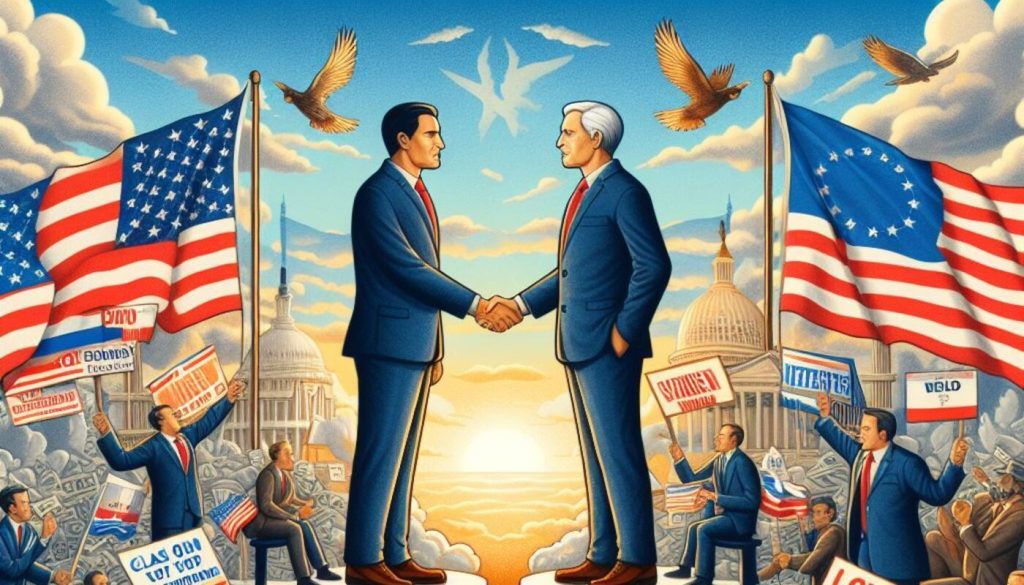As the 2024 U.S. presidential election approaches, American voters face a stark choice between Democratic incumbent President Joe Biden and his Republican predecessor, Donald Trump, each presenting distinct policy platforms on crucial issues. Examining their stances on 10 key areas reveals sharp differences.
Economy:
President Biden’s economic strategy, dubbed “Bidenomics,” focuses on bolstering the economy from the ground up, emphasizing investments in infrastructure, manufacturing, clean energy, and job creation. While his leadership has seen robust growth and employment gains, concerns persist over rising inflation, particularly in essentials like food and fuel.
In contrast, Mr. Trump blames Biden’s expansive spending for inflation and pledges a return to a regimen of lower taxes and reduced regulations. He also vows to replace Federal Reserve chair Jerome Powell, whom he accuses of politicization.
Immigration:
Biden’s immigration agenda initially promised a more compassionate approach, including rescinding several Trump-era border policies, raising the refugee admissions cap, and expanding humanitarian parole. However, a surge in illegal immigration and public backlash prompted a shift towards stricter measures, with bipartisan support for a bill allowing border closure. Trump aims to revive his first-term policies to fortify the border and execute what he terms “the largest deportation operation” in U.S. history. His proposals also include ending birthright citizenship and combatting Mexican drug cartels.
Abortion:
Biden vows to restore reproductive rights following Supreme Court rulings curtailing access to abortion, pledging to uphold Roe v Wade if Democrats regain control of Congress. Trump takes credit for influencing anti-abortion policies but refrains from specifying a national stance, favoring states’ autonomy on the issue.
Ukraine Aid:
Biden advocates for continued support to Ukraine, cautioning against empowering Russian President Vladimir Putin, which could encourage China. In contrast, Trump previously hinted at leniency towards Russian actions if NATO allies fail to meet financial obligations, though he has softened his stance since.
Source: BBC


















